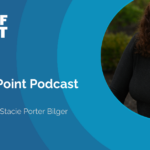[vc_row][vc_column][vc_column_text]
SEO can be intimidating. Just when you think you have it figured out, something changes and you have to learn something new.
Below, we’ve rounded up a list of questions you may have about SEO but are too afraid to ask. Hopefully, this will help if you’re struggling with different aspects of SEO that seem simple but still cause a lot of confusion.
1. What does SEO mean?
SEO stands for search engine optimization. It describes the methods used to make your website appear higher in organic search results based on users’ queries on search engines such as Google, Bing, or Yahoo.
2. Is SEO the same as PPC?
No. PPC, which stands for pay-per-click, is a form of advertising in which advertisers pay to appear at the top of the search results page. SEO refers to non-paid placements on search engine results pages (SERPs).
3. What are the different components of SEO?
There are three main components of SEO:
- On-page SEO refers to optimizing your site’s content for search engines based on what users may be searching for. It also includes things like meta descriptions, title tags, and the use of high-quality images.
- Technical SEO involves improving your site’s technical elements so search engines can crawl, index, and render your web pages correctly. Ensuring your site loads quickly, is mobile-responsive, and isn’t bogged down with a lot of excess code are also important factors of technical SEO.
- Off-page SEO refers to activity outside of your website that affects its rankings, such as link building, reviews, and your presence in online directories.
4. What are title tags and meta descriptions?
 A title tag is an HTML element that refers to the title of a web page. Meta descriptions are the HTML elements that provide brief summaries of the content of a web page.
A title tag is an HTML element that refers to the title of a web page. Meta descriptions are the HTML elements that provide brief summaries of the content of a web page.
Both are important for SEO because they allow search engines to understand what a web page is all about. Users also see them on their search results pages.
Google has stated that meta descriptions are not a significant factor in SEO rankings. Still, a good meta description can entice users to click through to your website, so it’s important to put some effort into crafting them.
5. Why is keyword research necessary for SEO?
Keyword research helps you understand what people are searching for online and the language they use when making a search query. It can provide insights into how popular a search query is and how likely you are to rank for that keyword. You can then make decisions based on that data to determine which keywords and phrases will drive traffic to your site.
However, you should avoid “keyword stuffing,” or using your desired keywords excessively to try to manipulate your rankings. Search engines consider this a blackhat SEO tactic, and your site may be penalized if you get caught doing this.
6. What is a robots.txt file?
Robots.txt is a text file within your website that tells search engines how to crawl your web pages. You can find it by going to yourdomain.com/robots.txt.
7. What is a sitemap.xml file?
 An XML sitemap is a file that lists your website’s most important pages. It allows search engines to crawl your pages and helps them understand how your site is structured.
An XML sitemap is a file that lists your website’s most important pages. It allows search engines to crawl your pages and helps them understand how your site is structured.
You can learn how to create a sitemap by following these instructions from Google. You can also use a sitemap generator or install plugins in your content management system to create a sitemap for you.
8. What are backlinks and why are they important?
Backlinks refer to third-party websites that link back to any page on your website. Many people also call this “link building.” Having a strong backlinks profile is considered a stamp of approval because it signals to search engines that your website’s content is accurate and valuable.
Not all backlinks are considered equal, however. Quality is just as important, if not more than, quantity. Too many poor-quality backlinks can negatively impact your search rankings because search engines consider it a spammy SEO practice.
9. Are backlinks the same as internal links?
No. Backlinks are external websites that link to your content. Internal links are links to other pages within your own site.
10. How do images play a role in SEO?
Images provide context for the written content on your site. They help break up large pieces of text and make your web pages more visually appealing.
When adding images to your web pages, you should always include alt attributes. These are brief descriptions that summarize what appears in an image. They help search engines understand what the image is about so they can index it properly. And if a browser can’t render an image, it will display the alt attribute instead.
Alt attributes are also important for visually impaired users who use screen readers. Since the screen reader can’t display an image, it will read off the alt attribute.
11. Why isn’t my website ranking or why did my rankings drop?
There are many reasons why a website may not be ranking at all or why a website with high rankings suddenly drops. Some of these reasons include:
- You just launched your website and search engines don’t yet recognize it as a reputable source to rank for competitive keywords.
- You haven’t submitted a sitemap to Google.
- Your content isn’t strong enough and doesn’t match users’ search intent.
- Your site has been hacked and search engines consider it harmful to users.
- Google changed its algorithms.
- Your competitors have started utilizing more aggressive SEO strategies, and they are outranking you.
[/vc_column_text][/vc_column][/vc_row][vc_row type=”vc_default” bg_type=”image” parallax_style=”vcpb-default” bg_image_new=”id^4685|url^https://proofdigital.com/wp-content/uploads/2021/01/planes.png|caption^null|alt^paper planes ascending|title^planes|description^null” bg_image_repeat=”no-repeat” bg_image_size=”contain” bg_image_posiiton=”top right” css=”.vc_custom_1623415708457{padding-top: 35px !important;padding-right: 35px !important;padding-bottom: 35px !important;padding-left: 35px !important;background-color: #f5f4f2 !important;}”][vc_column width=”3/4″ css=”.vc_custom_1623416680144{padding-right: 100px !important;}”][vc_column_text]
FREE Instant Website Audit
Websites need health check-ups just like humans.
Do you know how your site is performing? Contact us for a free consultation any time.[/vc_column_text][dt_default_button link=”url:https%3A%2F%2Finfo.proofdigital.com%2Ffree-site-audit%2F%3F_ga%3D2.166629622.975609642.1623379412-1585899426.1623379412|target:_blank” size=”medium”]Get My FREE Site Audit[/dt_default_button][ultimate_spacer height=”10″][/vc_column][vc_column width=”1/4″][/vc_column][/vc_row]






